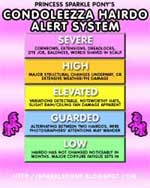What a great way to introduce Socrates to the world. Why this dialogue has never been covered as a great legal thriller is beyond me. Let John Grisham massage the script a little and I think we've got a winner.
This dialogue really sets the tone for future discussions. Socrates puts out a few central tenets that we will turn to again and again. Here's three central tenets that I think he espouses in this dialogue and will be helpful to refer back to in the future:
1) The unexamined life is not worth living
corollary: It is folly to believe you have wisdom that sets yourself above others
2) You should always act honorably, or for "the good."
quote: "Powerful as it was, the gov't did not terrify me into wrong action." (32d)
3) People naturally prefer good actions (25c-26a)
The basis for all of these ideas are explored in other dialogues. The Apology is just an excellent summary of Socrates and his life, compared to the later, more abstract, Socrates in the Republic and other dialogues.
When I first read the Apology, one question that came up was whether or not Socrates was a martyr. I argued vehemently that he was not. I still think so but find it hard to pin down the distinction. Using the clever device of definitions, here's the definition of martyr that I think makes it so tricky:
2. One who makes great sacrifices or suffers much in order to further a belief, cause, or principle.
3.
a. One who endures great suffering: a martyr to arthritis.
b. One who makes a great show of suffering in order to arouse sympathy.
In the sense of 2, I think he is a martyr. He does suffer death to stay true to his principle and to impress upon his children and followers the importance he attached to these principles. However, in the sense of 3, especially 3b, I think he is not a martyr. He is not trying to make a spectacle of himself for these principles. He is unwavering in his defense of his principles but he is not trying for the spectacle that I associate with a traditional, Christian martyr.
As for the role of artists, there are some other dialogues that explore those connections so I'll put that off for now. The Meletus section is the fun part about the early dialogues and one reason I think they "Philosophy 101" can be an approachable course. You have this guy out there asking, "why, why, why?" to these same answers teenagers have been given for years. Now, here is the opportunity to actually think these ideas through with others. It shows the reason philosophy is a part of everyone's life and makes the case that everyone can benefit from having their beliefs challenged (see, even Plato supports the punk ethos).
Next week we'll start to actually discuss particular concepts [of law] but it's always good to remember why philosophy doesn't have to make everyone's eyes glaze over.


